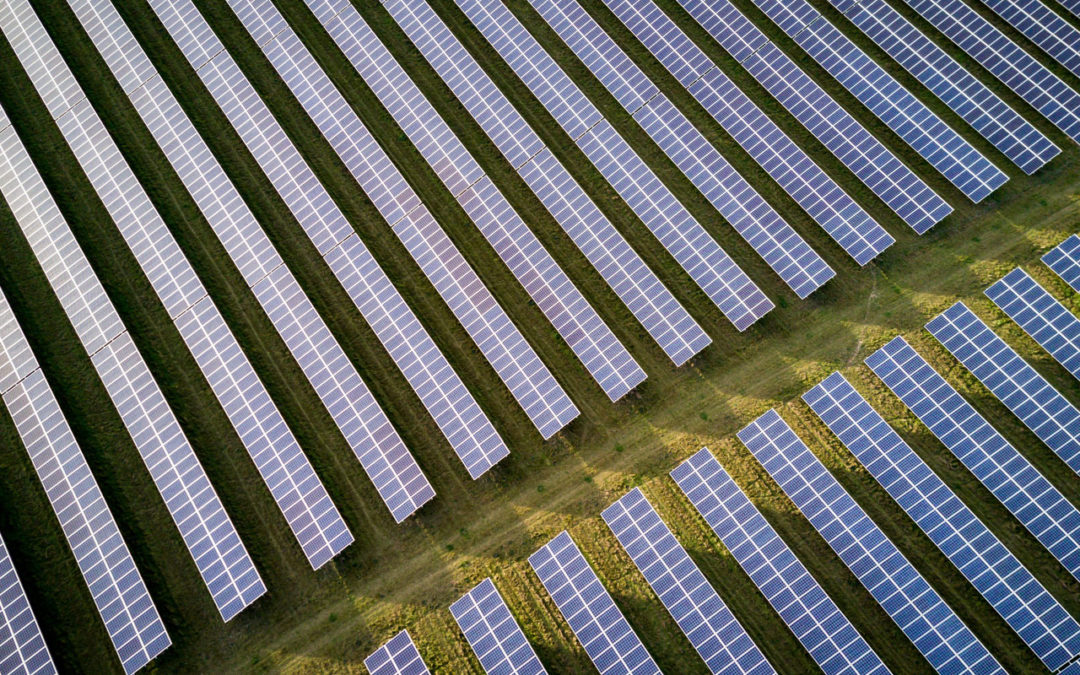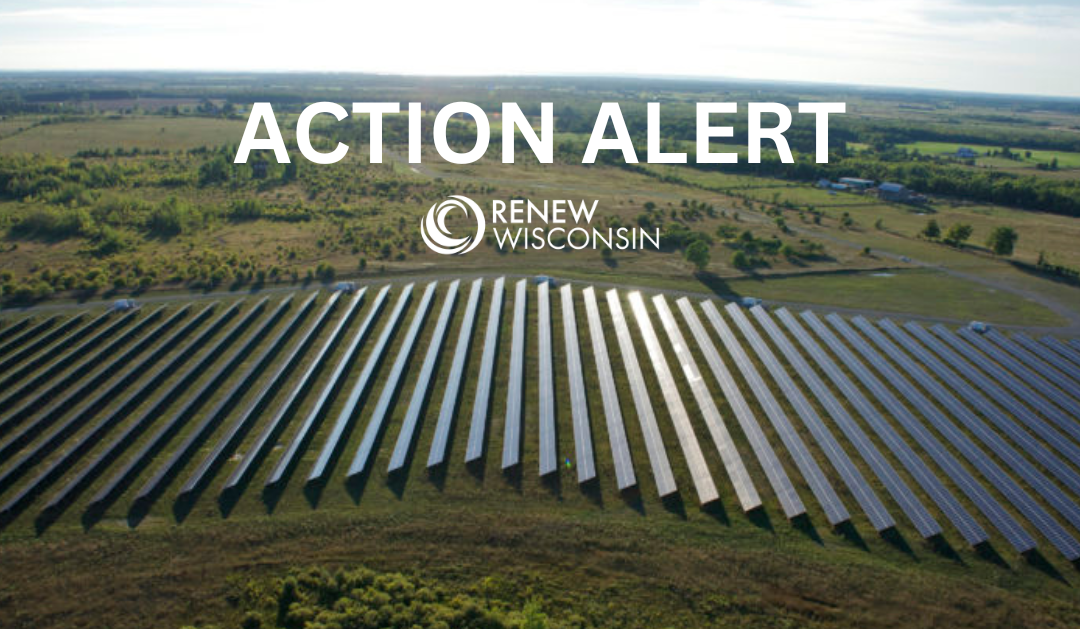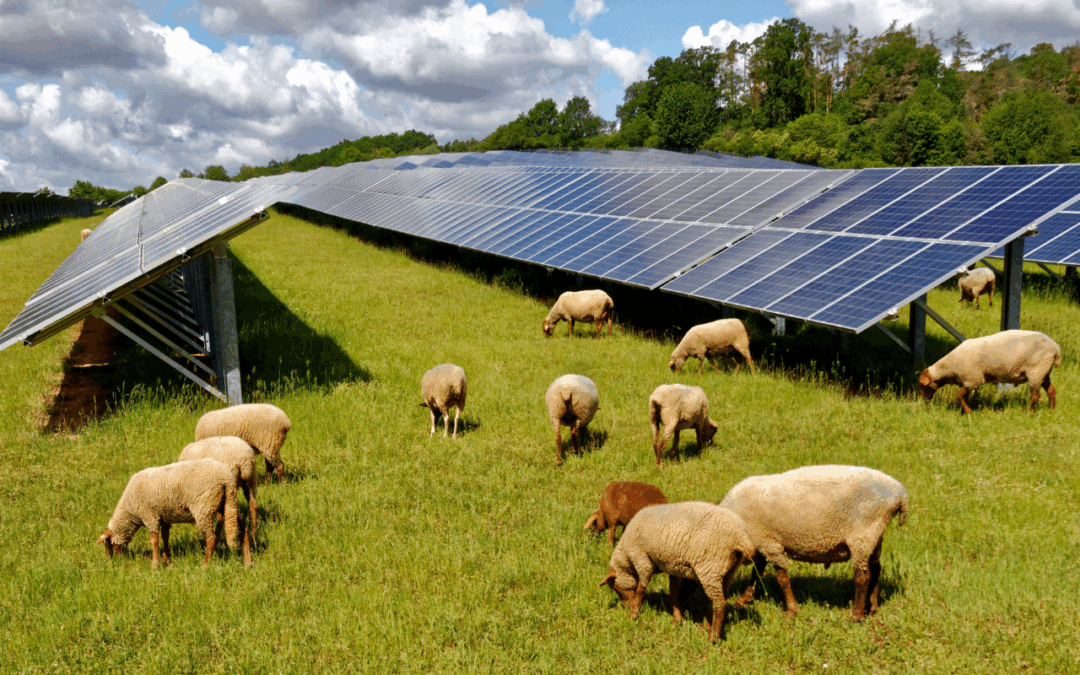Benefits of Agrivoltaics
All solar projects generate clean energy that powers Wisconsin’s homes and businesses while creating stable revenue opportunities for farmers and landowners who lease their land. Through agrivoltaics, farmers can create additional opportunities to diversify their income if they choose to.
We are learning that the shade provided by the panels provides some additional benefits when it comes to growing specific crops. The shady environment created by the panels could be used to optimize water usage for a variety of herbs, berries, and vegetables and reduce the amount of direct sunlight and, ultimately, heat stress for these crops. Other sites are also testing hay, alfalfa, wheat, soybeans, and corn.
As described in the report, the agrivoltaics project at Iowa State University aims to determine agrivoltaic practices suited to the Midwest, as well as identify resources needed to assist multiple stakeholders, such as solar developers, farmers, and utilities.
In cases where it might not make sense to grow crops between the panels themselves, there is still an opportunity to create a benefit for nearby agricultural activity. By planting native, pollinator-friendly plants between the panels, there is an opportunity to increase plant biodiversity, attracting pollinators critical to agricultural productivity. This has the potential to increase crop yields for farmers on the parts of their land they’re still using. In the meantime, the land used for solar energy production and pollinator habitat will have a chance to rest. When the project reaches the end of its life, it is likely that the soil will be in great condition for farming.
Research Across the Globe and At Home
Research and project implementation are underway in Wisconsin. For example, OneEnergy Renewables’ agrivoltaics projects are planted with either a deep-rooted, perennial pollinator prairie mix or a pasture seed mix underneath the tracking solar arrays. Today, OneEnergy boasts 948 acres of developed pollinator habitat and 155 acres of solar grazing with sheep. The Mastodon Solar portfolio, built in 2021 across Wisconsin and Minnesota, is a group of eight OneEnergy projects.
Wisconsin is, of course, not the only place where agrivoltaics research and implementation are occurring. This effort spans several continents and is being widely researched across the U.S. Here in Wisconsin, the University of Wisconsin-Madison has partnered with Alliant Energy on the Kegonsa Research Campus solar array. The array features three distinct types of solar panel racking and various spacing between each row of panels.
The array will produce enough energy to power around 450 homes, while it serves as a living laboratory. It is designed to advance knowledge and education about win-win opportunities for pairing renewable energy with agricultural activities and research across the State of Wisconsin. Proposed research and demonstration include horticulture, forage trials, pollinator monitoring, ecohydrology, microclimate, and more. The Kegonsa Research Campus solar array is one of several agrivoltaics projects across the state. Each shows promise to meet the type of success already achieved by global leaders in this space.
Challenges and Opportunities
One of the biggest challenges to furthering agrivoltaics research and implementation is the partnerships required to make these projects happen. For a project to come together, a collaborative partnership between researchers, solar developers, utilities, landowners, and farmers is required. It is possible to build these relationships, but it requires understanding the unique perspectives and experiences of each party.
At the same time, one of the challenges that solar faces can be turned into an opportunity through agrivoltaics. Based on our zero-carbon study, Wisconsin will need to develop more than 28 Gigawatts of solar by 2050 to meet our decarbonization goals. This will require about 200,000 acres of land, much of which will be in agricultural settings. Agrivoltaics presents an opportunity to approach agricultural land use through a yes-and mentality.
Another potential challenge is funding. That’s where the American-Made Large Animal and Solar System Operations (LASSO) Prize comes in. Funded by the U.S. Department of Energy (DOE) and offering more than $8 million in funding to support projects, this prize is designed to bring solar developers, farmers, ranchers, and other stakeholders together. The LASSO Prize concentrates on forming partnerships that result in building impactful projects that deepen the public’s understanding of agrivoltaics, specifically agrivoltaics with a focus on cattle. Additionally, the USDA, through partnerships with the DOE, is offering funds to support agrivoltaics work, and as seen in our case studies, research institutions have often been the beneficiaries of these funds.
How We Can Support Agrivoltaics
Based on everything we know about agrivoltaics, we believe that Wisconsin can support this opportunity through the development of clear and adaptable guidance. We can do this while making sure policies consider and respect the diverse needs of each farm and project developer. From the report, we know that Wisconsin has experience with pollinator-friendly projects, as well as some projects that allow sheep grazing. While no commercial projects have incorporated crop production into an agrivoltaics project in Wisconsin, the UW-Madison Kegonsa Research Campus is providing the research needed to someday make projects like these possible in the Badger State.
Though we’re not quite ready to go all-in on agrivoltaics, we can get closer by expanding our research efforts. As we do this, it is important that we spread our efforts across diverse regions of the state. This will give us opportunities to test a variety of agricultural practices and crops with different combinations of soil types and climate zones.
Creating guidance and supporting research alone is just the start. Broad implementation of agrivoltaics will require guidance on business partnerships and financing agreements, financing opportunities, a skilled workforce, knowledge sharing, and policies that expand opportunities to research new, creative possibilities. Finally, one key recommendation from the report states:
Given the early stage of agrivoltaics, policies should focus on enabling experimentation rather than requiring it. Mandating specific agrivoltaic practices or designs could limit innovation and disproportionately impact small or family farms that may not be ready to adopt new technologies.
Aligning Clean Energy With Our Agricultural Heritage
As we continue our pursuit of agrivoltaics, we can’t ignore the promising opportunity that we have to align Wisconsin’s clean energy goals with its agricultural heritage. The success of these efforts will depend on flexible, locally informed policies. The policies our state develops should protect farmers’ freedom to manage their land, avoid unnecessary government mandates, and encourage voluntary adoption for farmers who want to diversify their income. It is critical that family farms have the opportunity to benefit from this emerging technology so that Wisconsin farms can continue to be owned and operated by the people who live here.



